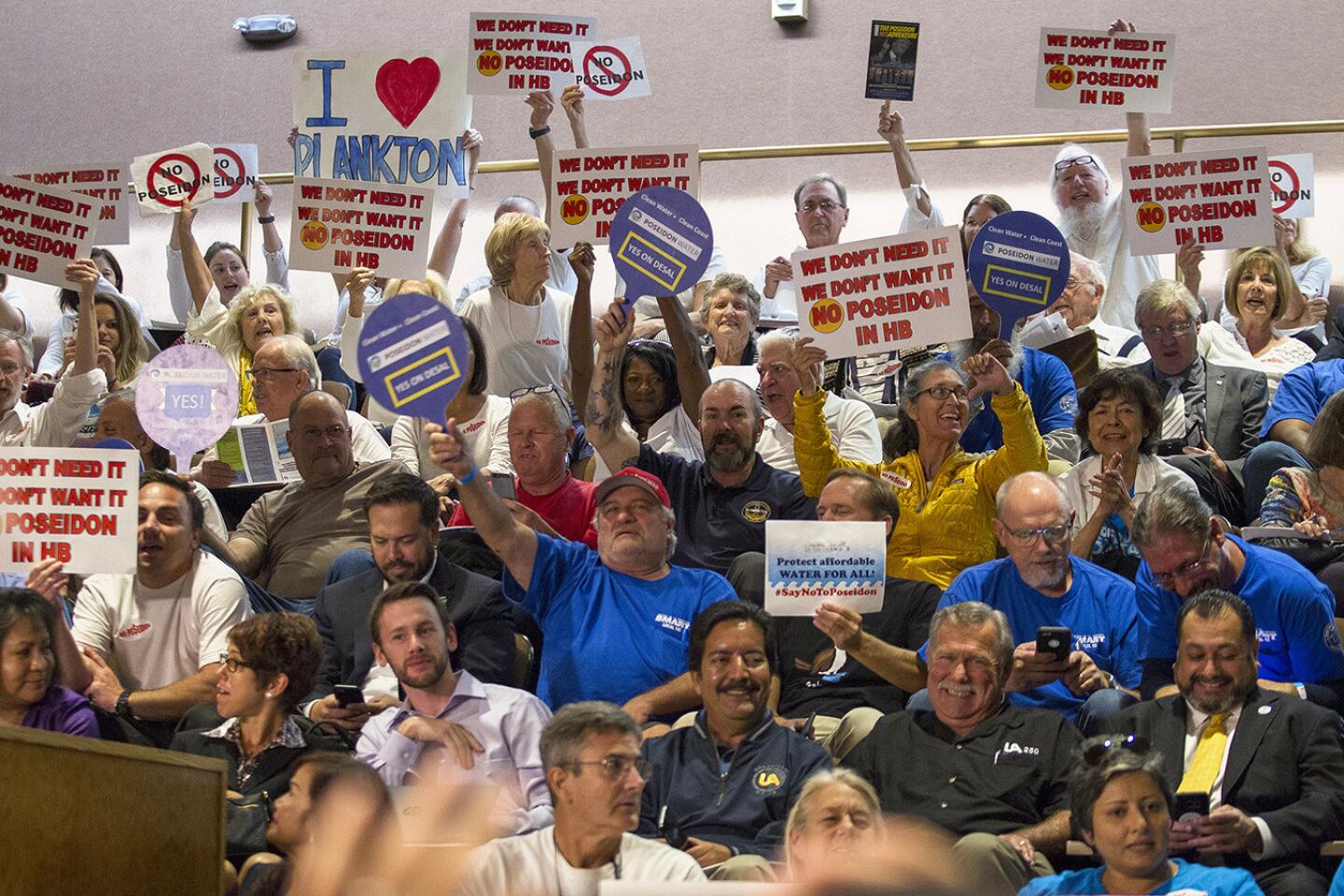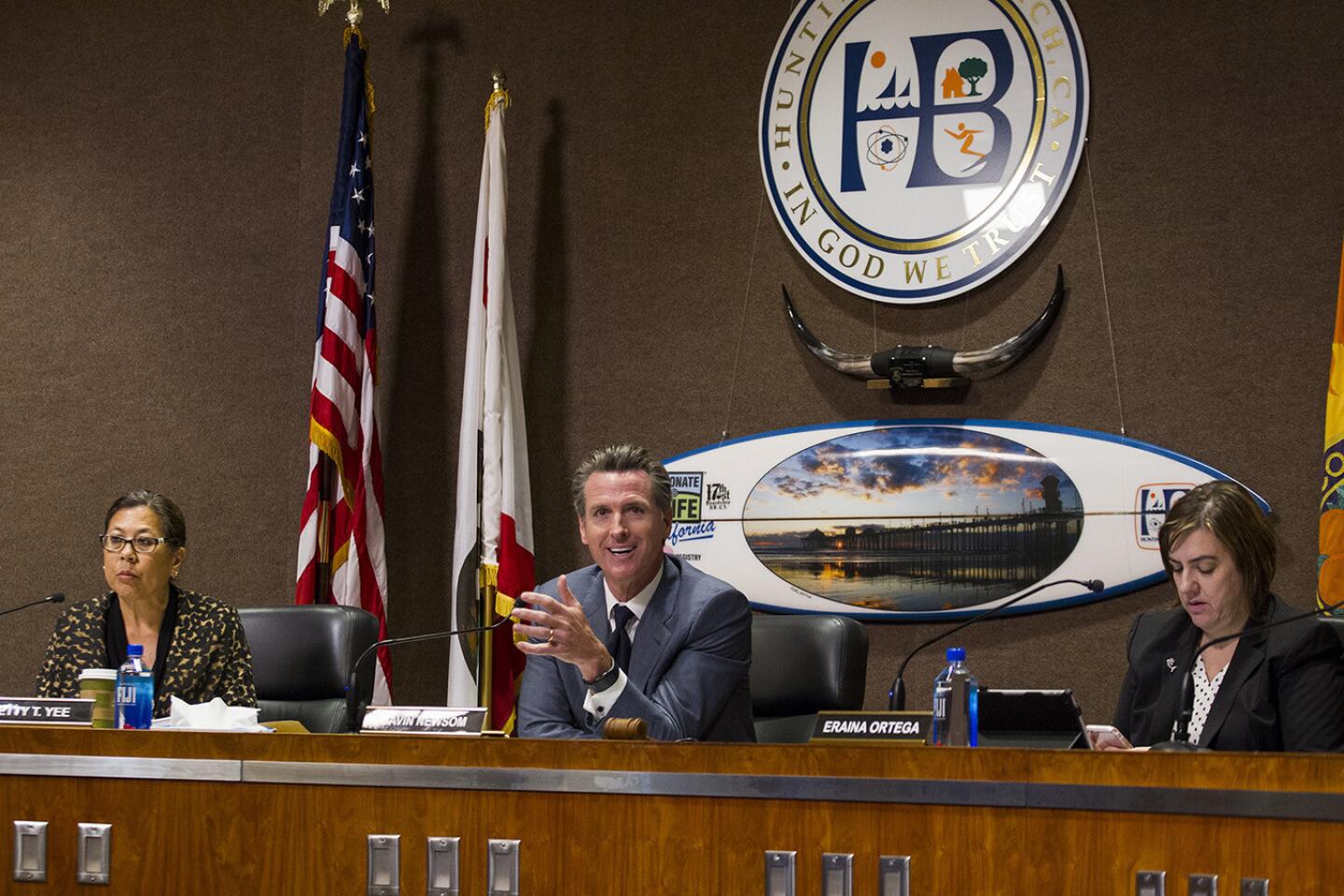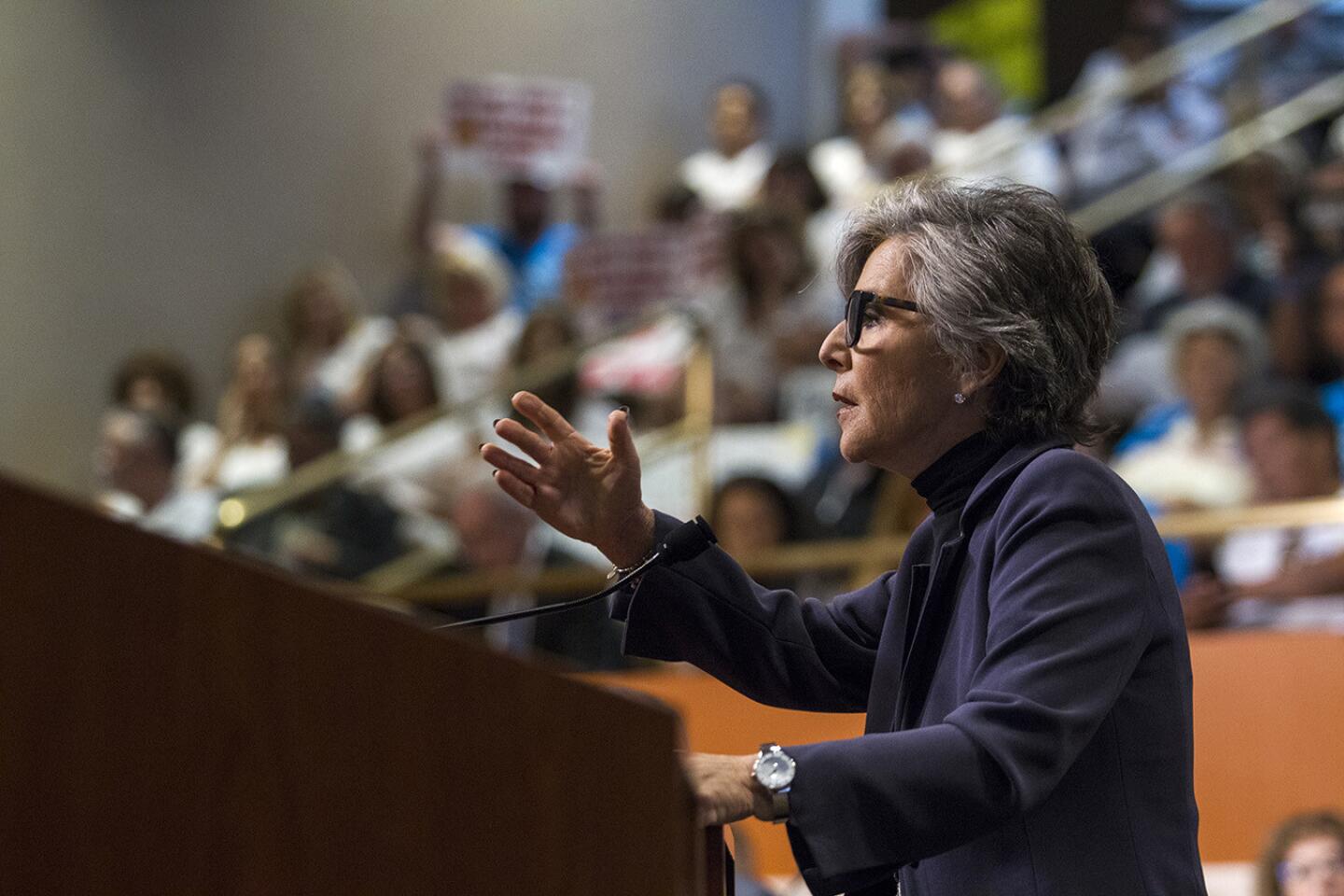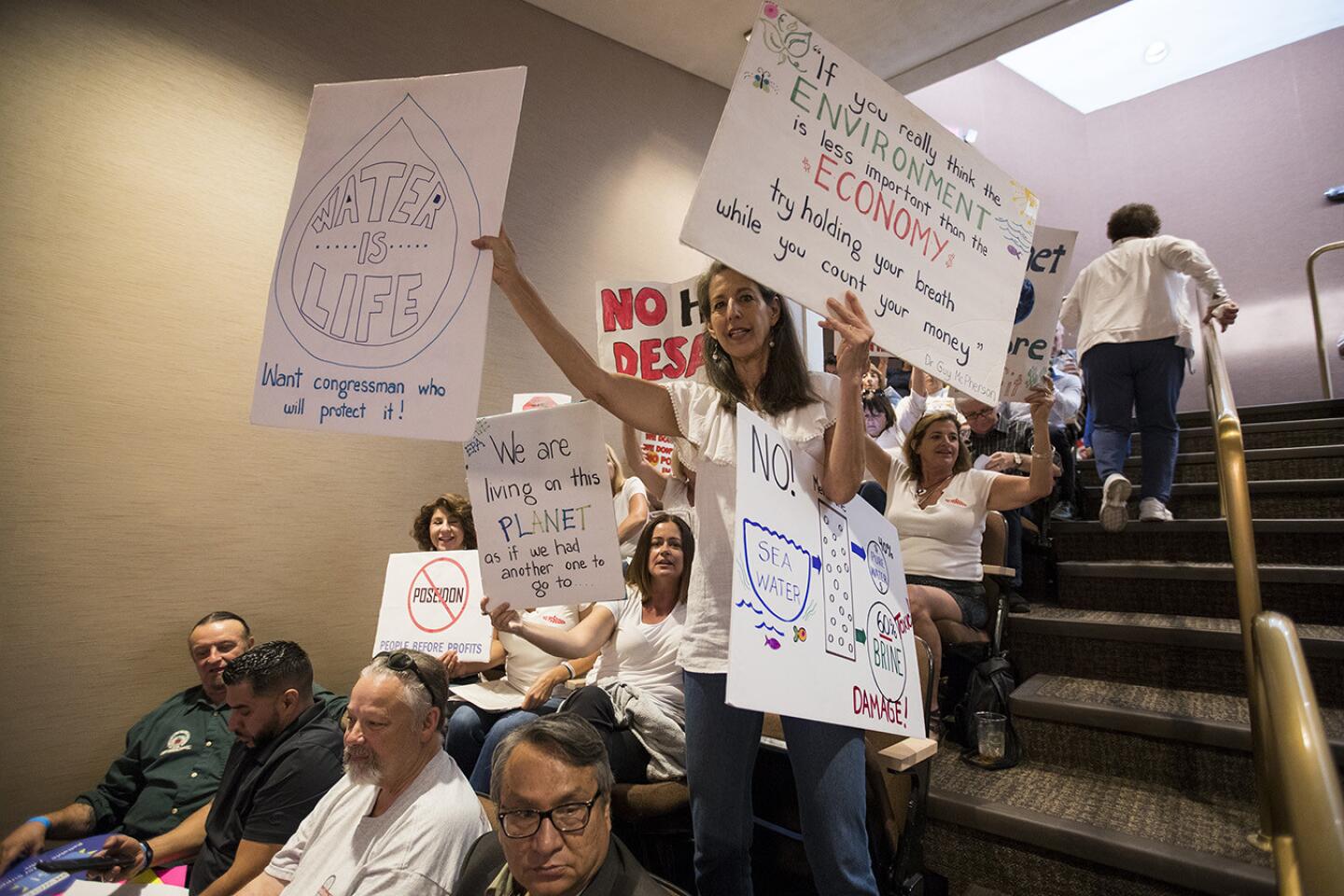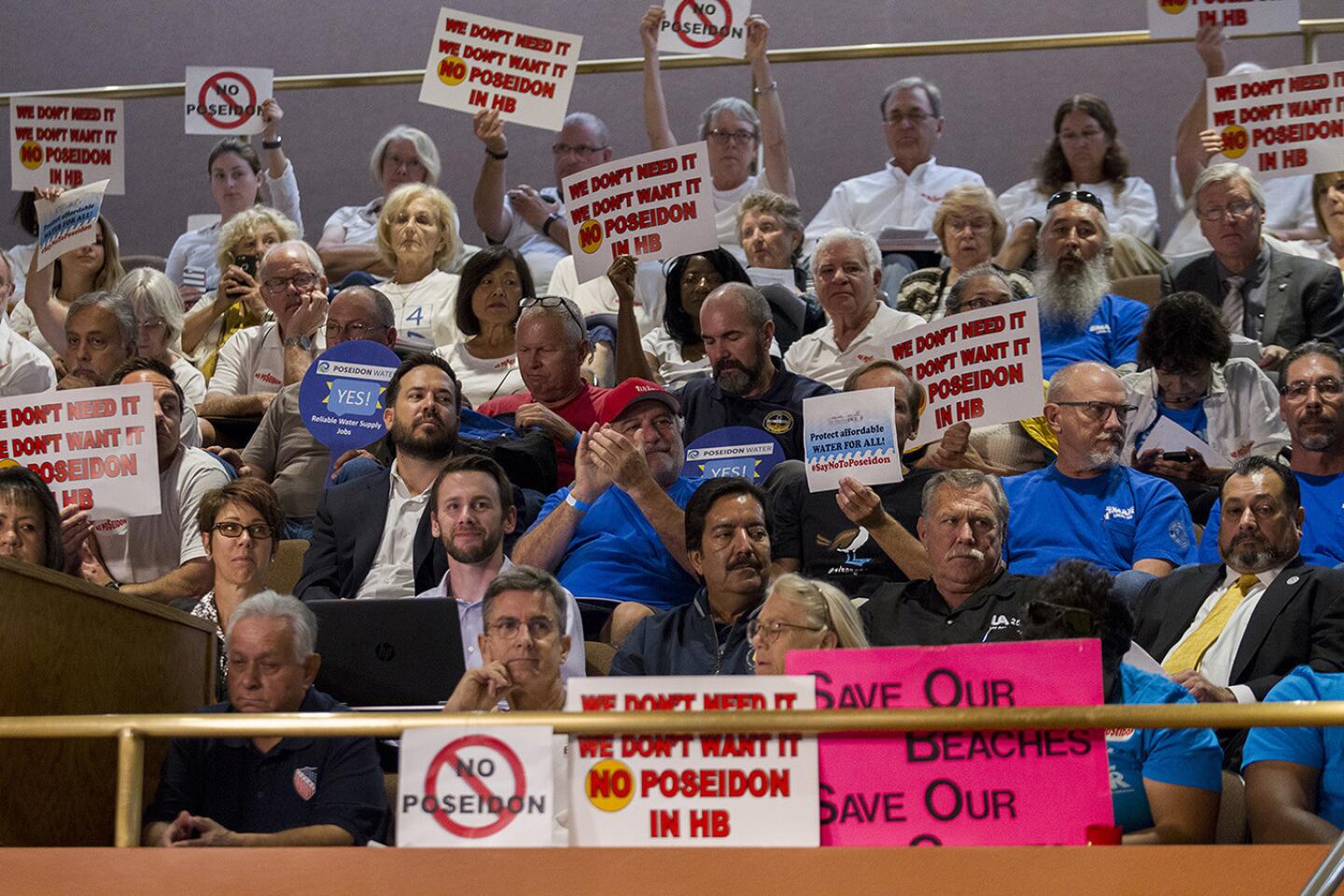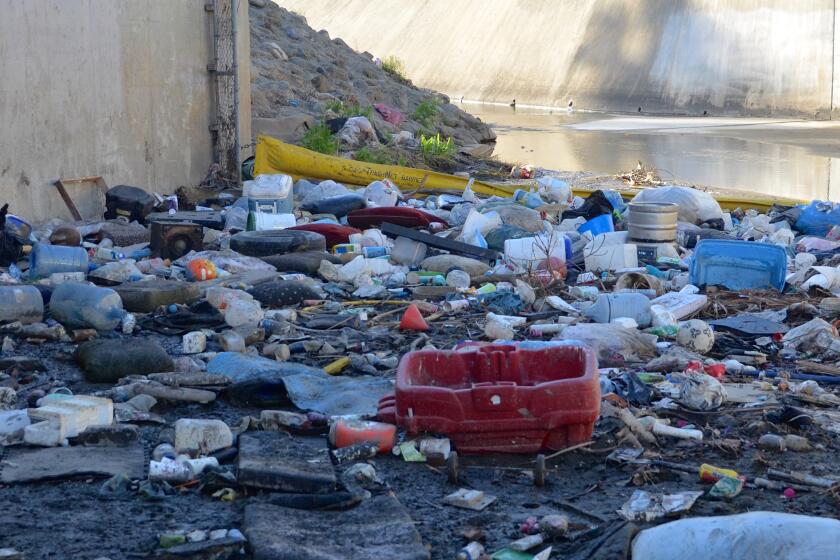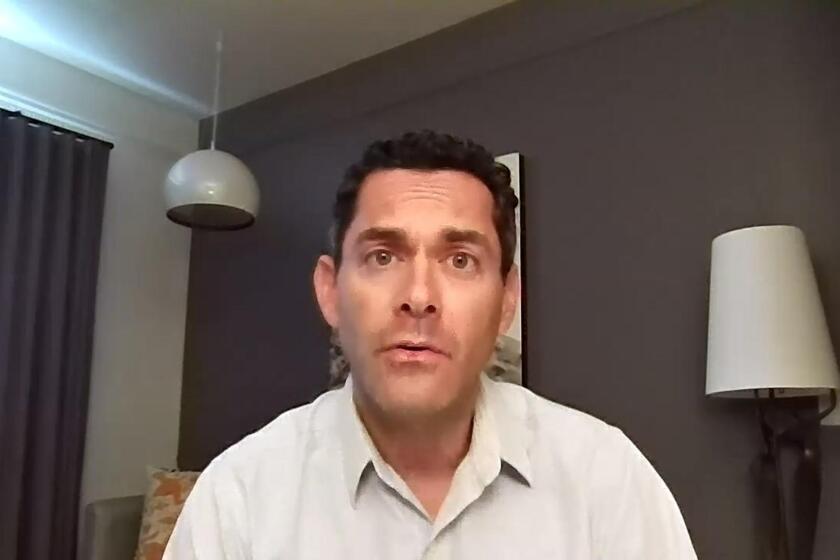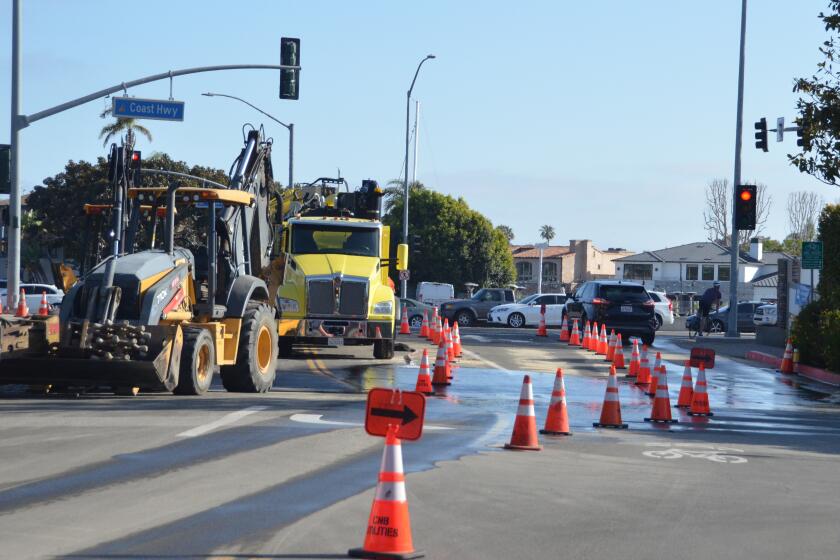Proposed Huntington Beach desalination plant clears a hurdle with State Lands Commission vote
A proposed Huntington Beach seawater desalination plant passed a major regulatory hurdle Thursday when a marathon session at City Hall concluded with an endorsement from the California State Lands Commission.
After more than four hours of public comment, the three-member panel unanimously approved amendments to a 2010 environmental impact report on Poseidon Water’s $1-billion project.
The additions, recommended by commission staff, are expected to make the proposed plant at Pacific Coast Highway and Newland Street less harmful to ocean life and ensure its compliance with the California Ocean Plan, passed in 2015.
Among the changes are installing 1-millimeter wedgewire screens on an existing 14-foot-diameter offshore pipeline. The stainless-steel screens, about as thick as a credit card, are designed to prevent larger sea creatures from getting sucked into the intake pipe.
Poseidon also wants to install diffuser technology on another offshore pipeline that would lessen the salt concentration of the plant’s discharge, according to commission staff.
Both pipelines have been in use since 1957.
“We are grateful for the thoughtful deliberations by the members of the California State Lands Commission and for approving our proposed environmental enhancements to the Huntington Beach desalination project,” Scott Maloni, Poseidon Water’s vice president, said in a statement. “Today’s action is an important step toward addressing California’s need for a reliable source of clean water that can withstand the very real threat of climate change. Once built, Huntington Beach will be the most technologically advanced, energy-efficient and environmentally sound seawater desalination plant in the world.”
Poseidon says the plant would produce 50 million gallons of drinkable water a day, enough for 400,000 people.
Commissioner Betty Yee, California’s state controller, said she wanted to see the facility be a model by being carbon-neutral.
Proponents of the project wore blue T-shirts that read “Water for the people” in English and Spanish and contained the hashtag “#VivaDesalination.”
Representatives of organized labor also expressed their support, arguing that the project would create thousands of jobs. Several Orange County politicians and water agencies commended the project as well, saying it would create a much-needed local water supply.
Some advocates of the Bolsa Chica Ecological Reserve applauded Poseidon’s recent pledge to give $300,000 annually to a state fund that could apply the money toward restoring the wetlands.
Opponents, many from Huntington Beach and regional environmental groups, said the project would harm sea life and is an expensive, inefficient method to obtain water that isn’t necessarily needed.
Among the group in Poseidon’s corner was former U.S. Sen. Barbara Boxer. The retired California Democrat said she has always been an environmentalist but can’t understand why there is so much opposition to this project.
She noted how desalination has been a solution locally and worldwide.
“We’ve seen it in Carlsbad,” Boxer said, referring to another Poseidon plant. “We’ve seen in Israel. We’ve seen it around the world.”
Ray Hiemstra, associate director of programs for Costa Mesa-based Orange County Coastkeeper, said screens like the one Poseidon wants to install have been faulty and known to clog.
He warned how the plant’s discharge could kill marine life and urged conservation measures to handle Orange County’s water demand.
“We’re wasting more water every day than this plant would produce. … Conservation still has a long way to go,” Hiemstra said.
James Fisler, a director of the Mesa Water District in Costa Mesa, which has long supported Poseidon, accused environmentalists of fear-mongering.
“The answer to the drought is more water,” Fisler said.
Former Huntington Beach Mayor Debbie Cook said the community, not Poseidon, should determine how much water is needed, how much should be produced and what technology is used.
“Poseidon has turned this process on its head,” she said.
Victor Valladares and Oscar Rodriguez, members of Oak View Comunidad, a Latino advocacy group in Huntington Beach, argued that the plant would not provide an affordable water supply for their community, where many of whom residents live paycheck to paycheck.
Jennifer Savage, California policy manager with the San Clemente-based Surfrider Foundation, pointed to Poseidon’s desalination plant in Carlsbad. She accused the company of being “terrible when it comes to environmental stewardship” and cited media reports this year saying the San Diego County plant is not delivering the amount of water promised.
Poseidon’s project next faces consideration by the Santa Ana Regional Water Quality Control Board, which could hear the matter in the spring.
After that, the proposal will go before the California Coastal Commission.
Twitter: @BradleyZint
All the latest on Orange County from Orange County.
Get our free TimesOC newsletter.
You may occasionally receive promotional content from the Daily Pilot.
